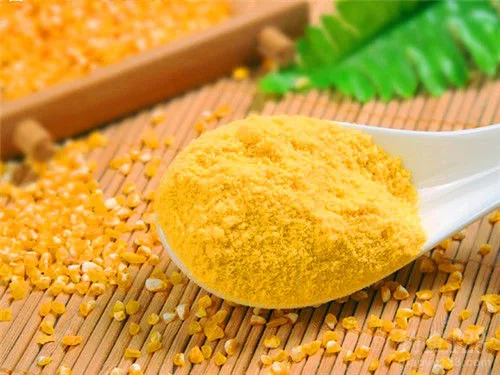Soy Isoflavones: Benefits, Dosage, and Best Supplements (2025 Guide)
Introduction to Soy Isoflavones
Soy isoflavones are naturally occurring plant compounds classified as phytoestrogens due to their structural similarity to human estrogen. Found abundantly in soybeans, tofu, and tempeh, these bioactive compounds have gained significant scientific attention for their hormone-balancing, antioxidant, and disease-preventing properties.

Key Questions Answered in This Guide:
✔ What exactly are soy isoflavones and how do they work?
✔ What are the proven health benefits backed by clinical studies?
✔ How to choose the best soy isoflavones supplement?
✔ What’s the optimal dosage for different health goals?
✔ Are there any side effects or people who should avoid them?
What Are Soy Isoflavones?
Soy isoflavones are polyphenolic compounds primarily found in soy products. The three major types are:
- Genistein (most researched, with strong antioxidant effects)
- Daidzein (converted to equol, a more potent metabolite)
- Glycitein (mildest estrogenic activity)
How Soy Isoflavones Work in the Body
- Estrogen modulation: Bind to estrogen receptors (ER-α and ER-β) with weak estrogenic/anti-estrogenic effects
- Antioxidant activity: Neutralize free radicals and reduce oxidative stress
- Enzyme inhibition: Block tyrosine kinases and aromatase enzymes
- Anti-inflammatory effects: Suppress NF-κB and COX-2 pathways
Clinical significance: These mechanisms explain their benefits for menopause, bone health, and cancer prevention.

Top 7 Evidence-Based Benefits of Soy Isoflavones
1. Relieves Menopausal Symptoms (Natural HRT Alternative)
- Reduces hot flash frequency by 26-45% (North American Menopause Society, 2012)
- Improves vaginal dryness and night sweats
- Comparable to low-dose estrogen therapy but safer long-term
Dose: 50-100 mg/day of total isoflavones
2. Protects Bone Density (Osteoporosis Prevention)
- Slows postmenopausal bone loss by inhibiting osteoclasts
- Increases lumbar spine BMD by 3-6% in clinical trials
- Works synergistically with calcium and vitamin D
Study: “Soy isoflavones and bone health” (Osteoporosis Int, 2006)
3. Supports Heart Health
- Lowers LDL cholesterol by 3-6% (FDA-approved health claim)
- Improves endothelial function (15-20% better FMD)
- May reduce blood pressure in hypertensive patients
Study: “Soy protein and CVD” (Circulation, 2006)
4. May Reduce Breast Cancer Risk
- Asian women with high soy intake have 30-50% lower risk
- Modulates estrogen metabolism toward protective 2-OH estrogens
- Enhances tamoxifen efficacy in ER+ breast cancer
Study: “Soy and breast cancer” (JAMA, 2009)
5. Anti-Aging Skin Benefits
- Boosts collagen production by 20% in clinical studies
- Reduces UV-induced wrinkles and improves elasticity
- Topical genistein shows photoprotective effects
Study: “Oral isoflavones and skin aging” (Br J Nutr, 2010)
6. Cognitive Function Support
- May lower Alzheimer’s risk by preventing β-amyloid plaques
- Improves verbal memory in postmenopausal women
- Neuroprotective via antioxidant and anti-inflammatory pathways
Study: “Soy and cognition” (Age and Ageing, 2015)
7. Prostate Health Benefits
- Reduces PSA levels in clinical trials
- Associated with 30% lower prostate cancer risk
- Inhibits 5α-reductase (similar to saw palmetto)
Study: “Soy and prostate cancer” (Cancer Epidemiol, 2010)
Choosing the Best Soy Isoflavones Supplement
Key Selection Criteria
✔ Standardized extract (40-100mg isoflavones per serving)
✔ Aglycone form (genistein, daidzein) for better absorption
✔ Fermented soy (natto, tempeh) for higher equol production
✔ Non-GMO & heavy metal tested (especially important for soy)
✔ Third-party certified (USP, NSF, or ConsumerLab approved)
Recommended Product Types
- Soy isoflavone capsules (most common, precise dosing)
- Fermented soy supplements (higher bioavailability)
- Combination formulas (with black cohosh for menopause)
Dosage Recommendations by Health Goal
| Health Benefit | Daily Dose | Best Time to Take |
|---|---|---|
| Menopause relief | 50-100 mg | Morning with food |
| Bone health | 80-120 mg | Split AM/PM doses |
| Heart health | 40-80 mg | With meals |
| General antioxidant | 40-60 mg | Anytime |
Note: Effects typically appear after 4-12 weeks of consistent use.
Safety & Potential Side Effects
Common Side Effects (Rare at Proper Doses)
- Mild digestive discomfort (gas, bloating)
- Allergic reactions in soy-sensitive individuals
- Temporary headache or dizziness
Who Should Be Cautious?
⚠ Estrogen-sensitive cancer patients (consult oncologist)
⚠ Hypothyroidism (may interfere with levothyroxine)
⚠ Pregnant/nursing women (limited safety data)
Important: Soy isoflavones do not cause feminization in men at dietary doses.
Conclusion: Are Soy Isoflavones Right for You?
Soy isoflavones offer remarkable multi-system benefits, particularly for:
- Menopausal women seeking natural symptom relief
- Postmenopausal individuals concerned about bone loss
- Anyone looking for antioxidant and anti-aging support
For optimal results:
- Choose high-quality, standardized supplements
- Combine with whole soy foods (tofu, tempeh, edamame)
- Be patient (benefits accrue over months)
Scientific References
- Messina M. (2016). “Soy and health update”. Nutrients 8(12):754.
- Taku K, et al. (2012). “Soy isoflavones for menopause”. Menopause 19(7):776-90.
- Ma DF, et al. (2008). “Soy and bone health”. Osteoporosis Int 19(11):1657-61.
- Anderson JW, et al. (1995). “Soy protein and lipids”. NEJM 333(5):276-82.
- Qin LQ, et al. (2006). “Soy and breast cancer”. Nutr Cancer 55(1):1-12.
soy isoflavones benefits, best soy isoflavones supplement, genistein and daidzein, soy for menopause, phytoestrogens for bone health, soy isoflavones dosage.

